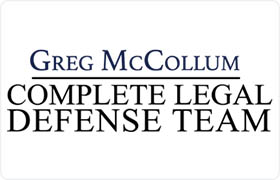Green Sea White Collar Crime Lawyer, South Carolina, page 5
Sponsored Law Firm
-
 x
x

Click For More Info:
-
Greg McCollum Complete Legal Defense Team
1012 38th Avenue North Suite 202 Myrtle Beach, SC 29577» view mapCriminal Defence Law Complete Legal Defense Team
Our goal at the Complete Legal Defense Team is to examine the facts and circumstances completely and help our clients.
800-634-0690
Not enough matches for Green Sea White Collar Crime lawyer.
Below are all Green Sea Criminal lawyers.
Robert John Johnston
Accident & Injury, Criminal, Traffic, Wrongful Death, Workers' Compensation
Status: In Good Standing Licensed: 30 Years
Robert Johnston
Admiralty & Maritime, Workers' Compensation, Elder Law, DUI-DWI
Status: In Good Standing
 Greg McCollum Myrtle Beach, SC
Greg McCollum Myrtle Beach, SC AboutGreg McCollum Complete Legal Defense Team
AboutGreg McCollum Complete Legal Defense Team Practice AreasExpertise
Practice AreasExpertise
